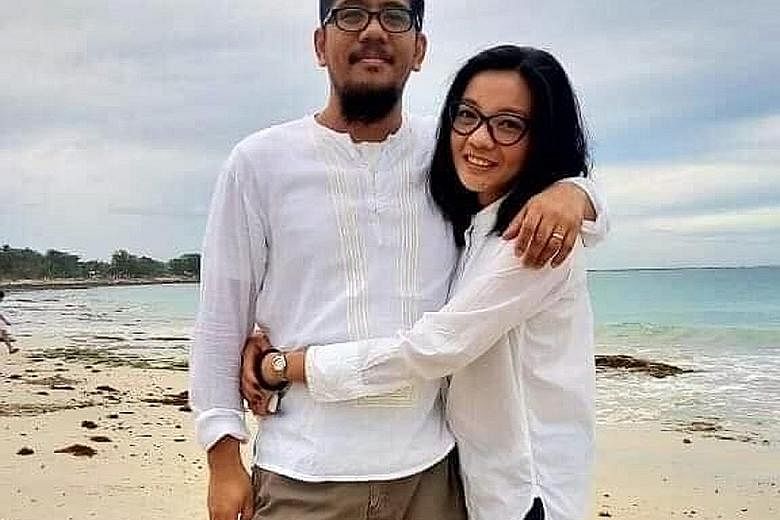The coronavirus pandemic has presented potential home buyers like Hong Konger Matthew Lai with an opportunity to take a stab at the world's most unaffordable housing market.
The 28-year-old public relations executive is taking advantage of slightly softer home prices and low interest rates to realise his dream of becoming a home owner.
He is among scores of young Asian professionals finding opportunities in problems created by the pandemic and its ensuing economic uncertainty.
"I'm taking advantage of this time to hunt for new property launches and in areas I would consider living in," says Mr Lai, who has given himself until the end of next year to find a place.
Owning a home instead of renting is a goal for many in Hong Kong, and in Mr Lai's case, he and his business consultant girlfriend, 27, have stable jobs and finances so they are not as stressed out about forking out the down payment for a 500 sq ft two-bedder.
"Because I have some planning, I have a little bit of investments, so right now, I wouldn't say I'm too worried," he says, adding that the current low interest-rate environment would also help reduce mortgage payments.
It seems others agree. Government data showed Hong Kong private home prices have rebounded after declining for several months, led by higher prices of medium-sized flats of between 430 sq ft and 752 sq ft, reported RTHK late last month. Prices of private flats in September added 0.3 per cent year on year, and were up by 0.4 per cent compared with August.
Indeed, in a sign that Hong Kong home buyers may be seizing the opportunity provided by cheaper borrowing, the ratio of new mortgage loans priced with reference to the one-month Hibor - the Hong Kong dollar lending rate - rose from 91.6 per cent in July to 92.9 per cent in August.
The one-month Hibor was at 0.13411 per cent on Wednesday, around a multi-year low - a situation similar in Malaysia and the Philippines.
For instance, the average 30-year fixed mortgage rate in Malaysia reached a record low of 3.09 per cent in September, according to financial services firm Bankrate's weekly survey of large lenders.
In the Philippines, the central bank's rate of 2.25 per cent is at an all-time low, while mortgage rates are also at multi-year lows.
The Hong Kong residential market has been fairly resilient despite serious economic repercussions due to the pandemic, notes Mr Nelson Wong, head of research at global real estate services firm JLL in Greater China.
"The well-documented chronic lack of supply and a generally affluent society are key reasons supporting prices," he says, adding that mass residential prices had dipped by only 0.2 per cent so far this year.
Still, as companies start to lay off staff and Hong Kong's economy remains in recession, worries are growing.
Mr Lai says: "For example, career progression is a little bit slowed down both for myself and my girlfriend. It's stressful in this period of time, but people are just trying to weather it."
Across the border, the economic pressure from Covid-19 has caused some young Chinese to delay their home ownership dreams.
A poll of 1,705 Shanghai residents found that more than half of those who had intended to buy a home this year have since either cancelled or put plans on hold, Chinese media outlet ThePaper.cn reported in April. This was especially true for younger respondents aged between 21 and 30 years whose incomes have fallen.
Some others across the rest of Asia share similar concerns but take the plunge anyway.
"We were worried (about mortgage payments), especially with talks of a business shutdown," says Filipino content writer Aze Gedalanga, 37. Together with his 34-year-old wife Lala, who is in sales, he put a down payment on a house south of Manila in April.
For a middle-income family like his, home ownership still takes precedence over many other concerns, with or without a pandemic, Mr Gedalanga says.
"We had already saved up for it, and my wife and I are in a stable industry anyway," he adds.
In the Philippines, home prices shot up 27 per cent in the second quarter, led by robust demand for high-end units. Analysts say Chinese buyers have been waiting in the wings for opportunities.
In Malaysia, where national property demand has fallen 2.5 per cent year on year, accountant Eileen Tan recently snagged a 2,200 sq ft terraced house for RM560,000 (S$183,000) in Denai Alam, Selangor.
"This is the best time to shop for a house as the market is soft and the interest rate is also low. Mine is only at 3.14 per cent, compared with the usual 4.25 per cent," says Ms Tan, 29. "I bought my first property 25 per cent cheaper than the initial price as the owner was desperate to get rid of it."
The original price tag on the house, which she bought in June, was RM750,000.
The state of Johor has recorded Malaysia's highest property overhang and a sharp 22.8 per cent decrease in demand.
Selangor was the only major state to see a rise in housing demand, up 3.5 per cent year on year for subsale residential properties, due to affordable units in Klang Valley's suburban areas.
In Japan, the pandemic appears to have spurred growing interest in cheaper homes outside Tokyo, facilitated by a rise in telework arrangements and a desire for more space.
A Cabinet Office survey in June revealed that 35.4 per cent of youth in their 20s who live in the 23 wards comprising central Tokyo were keen to move.
The Japanese government, with an eye on rural revitalisation, is also supporting the trend with subsidies for people and companies relocating from Tokyo.
"With the Covid-19 pandemic, people are spending more time at home than before, and this has led to rising popularity in larger apartments or detached houses, instead of cramped apartments with poor noise ventilation," Mr Yoichi Ikemoto, chief editor of housing website Suumo, tells The Straits Times.
• Additional reporting by Nadirah H. Rodzi in Malaysia, Danson Cheong in China, Raul Dancel in the Philippines and Walter Sim in Japan




